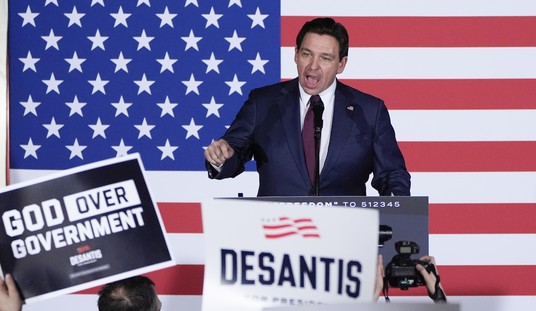We all know by now that the President’s opponents, primarily Democrats, are firmly opposed to strengthening security on the southern border by constructing the long promised wall. While this should really be a disqualifier in terms of holding office, the partisan divide is what it is, as the kids like to say. So be it. There are some reasonable arguments to be made in that regard, particularly in terms of the cost. Any such plan must be paid for and fiscal conservatives should insist on that. Logistical questions as to how much of it should be physical and what role electronic surveillance and other measures should be employed are also worthy of debate.
There is a serious question on the table right now regarding how Washington would obtain all the land required to build the wall. Much of it, particularly in Texas, is owned by either the states or private landholders. If they refuse to sell the land for fair compensation, the use of eminent domain may be required. Ten Democrats are seeking to introduce a bill which would forbid that action for purposes of building the wall, and now a new argument is being put forth in support of that effort. Enlisted to make the pitch is constitutional law professor Gerald S. Dickinson. This week he seeks to shame any conservatives who might support the wall by insisting that any federal use of eminent domain to secure the lands needed for construction would be against the wishes of the founders. (Washington Post)
Beyond the practical obstacles, the historical record suggests that attempts by the federal government to seize land within state boundaries for federal projects without consent and cooperation from the states would have probably raised quite a few eyebrows among members of the earliest sessions of Congress. William Baude’s excellent scholarship is instructive on this history of cooperative federalism.
The Fifth Amendment’s Takings Clause states “nor shall private property be taken for public use without just compensation.” But nothing in that provision expressly gives Congress the power of eminent domain. James Madison left a thin paper trail as to what exactly he intended in drafting the Takings Clause. There is no doubt that some members of Congress were believers in a federal eminent domain power, but the little evidence that is available on the question is still telling. Baude’s research has unearthed an important narrative about the power that is relevant today.
Dickinson goes on from there to provide an admittedly fascinating history lesson, noting the skeptical nature of most of the founders when it came to a strong central government as compared to allowing states to control their own destinies. He then proceeds to competently point to early decisions by the Supreme Court in the first part of the 19th century which cast a dim view on federal use of eminent domain. He concludes by proclaiming that this is a grand opportunity for Republicans, in particular, to reclaim their originalist roots!
Republicans who oppose (or even those on the fence, so to speak) the wall now may welcome the opportunity to reclaim the spirit of the founding generation as their guiding principle against federal intrusion into state territory along the U.S.-Mexico border, especially as many Republicans subscribe to originalism as a constitutional philosophy.
In case you’re wondering… yes. There is an argument coming from the left in favor of federalism. Just let that sink in for a moment.
Fortunately, Dickinson salvages his credibility as a historian by pointing out that the Supreme Court, in 1875, began the long march toward wiping out such originalist ideas and assigning more and more power to Washington, including decisions which specifically recognized the federal power of eminent domain for all manner of public projects. And until Donald Trump was in office, you didn’t hear many complaints about that on the left.
Look. I’m no fan of eminent domain except under the most extreme of circumstances and I’ve written about this here more times than I can count over the years. I still maintain that Kelo v. City of New London is arguably the worst decision ever made by the Supreme Court. (And I’m including Dred Scott among the contenders.) Such distortions of the intent of the Takings Clause are intolerable. And whenever eminent domain can be avoided at any level it should be. But when it’s used as originally intended for projects serving the use of the public in support of missions which the government is properly assigned to undertake, there may be no way around it. Securing the borders of the nation is one of the few things which the federal government is actually supposed to be doing.
But for those on the left ready to jump on Dickinson’s logic train here, we should expect another question to be answered. Are you now opposed to the federal government claiming land for national parks and monuments? Perhaps all of that land should be given back to the states or put up for sale to private owners, eh? After all, the Founders wouldn’t have liked that one bit, right?
Ouch. That question has to sting a bit.








Join the conversation as a VIP Member